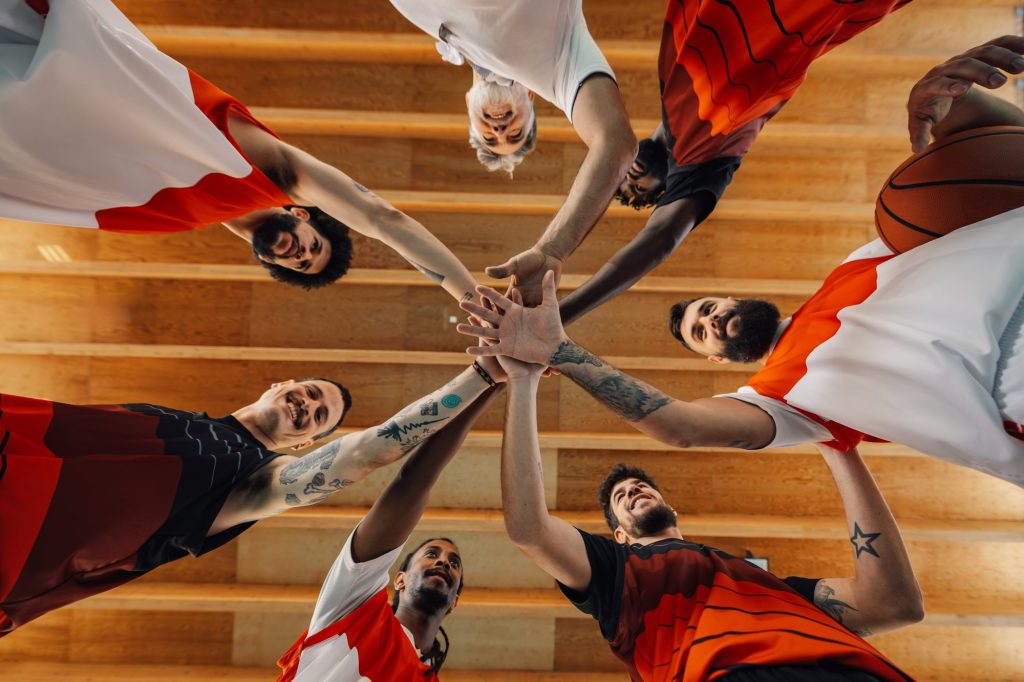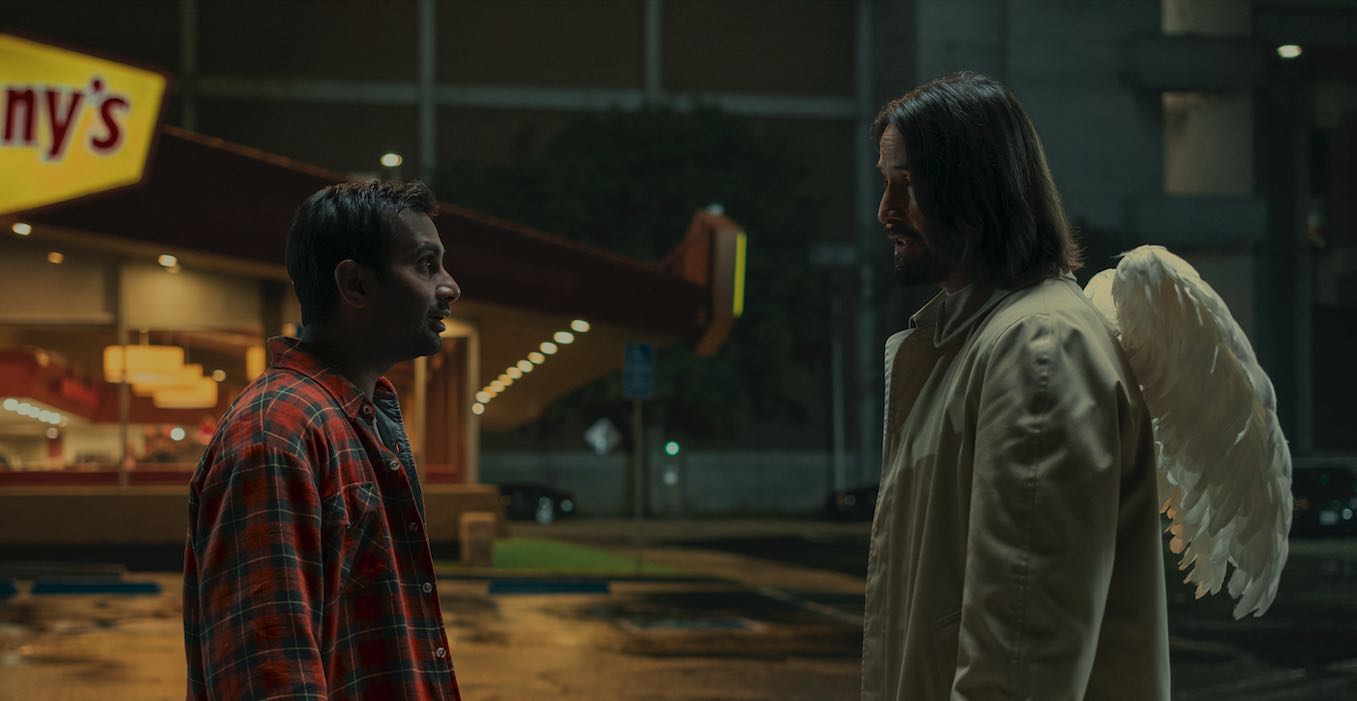Basketball in the past 30 years has become one of the most popular sports worldwide, with a fan base that covers all the continents.
A clear example of this is that there a very few athletes with their own brand that has the recognition that the Jordan Brand from Nike has on a global level. Michael Jordan is easily the top three most recognizable athletes in the world, and he has been retired from the league for almost 20 years now.
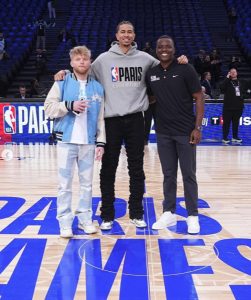
Jordan’s iconic plays have been cemented in the zeitgeist of society even though he played in an era before social media. Plays like his unbelievable dunk contest performance, his famous “flu game” and his dagger shot against the Utah Jazz in the NBA finals to seal the win are iconic to his legendary legacy.
In this article, we will explore the foundations of the league, its history, its present and its future as a global sport.
The Genesis of the League
The league was never competition for both the NFL and “America’s pastime,” baseball. Talented players in the 50’s, 60’s and 70’s dominated the league with examples like Wilt Chamberlain, Bill Russell and Jerry West. The league lacked popularity so much so that the games were taped and rarely aired live.
This was about to change with a 6-foot-9-inch point guard from Michigan with a smile that could light up a room called Earvin “Magic” Johnson Jr. and a 6-foot-9-inch shooting guard from Indiana with a silky-smooth shot and a physical game called Larry Bird, who were drafted to the Los Angeles Lakers and the Boston Celtics respectively.
Their intense rivalry made the league must-watch TV through the 80’s. Seeing Magic’s “Showtime Lakers” against Bird’s stacked Boston Celtics in the NBA finals three times marked one of the most iconic rivalries in basketball history. The final tally stood 2-1 with Johnson taking the upper hand.
Black Jesus enters the League
During the 80’s, the highest draft picks usually were centers as this was what the teams were looking for. The Houston Rockets had the first-round overall pick and selected Hakeem Abdul Olajuwon, a 7-foot Nigerian American center from the University of Houston. With the second round pick, the Portland Trail Blazers selected Sam Bowie a 7-foot-1-inch center from the University of Kentucky. And with the third round pick the Chicago Bulls selected the most influential player of their franchise from the University of North Carolina: the 6-foot-6-inch guard Michael Jeffrey Jordan.
In his early years, Jordan’s Bulls had issues making a deep playoff run, being eliminated twice against the famous Isaiah Thomas’ Detroit Pistons. But with the draft of what was arguable the second-best player of the league, Scottie Pippen, and the signing of one of the best defensive players in history, Dennis Rodman, the Bulls won six championships in eight years, cementing “Black Jesus’” legacy as arguably the GOAT of the league.
International Invasion of the League
With Jordan’s influence reaching out globally, the rest of the world started playing at a higher level than ever before. Early international players like Arvydas Romas Sabonis, Steve Nash, Dirk Nowitzki and Yao Ming just to name a few started making a name for themselves in the league. Many of these players did not have the athleticism that U.S. players had but had a repertoire of skills that made them dominate.
Olajuwon was the first international player to win MVP in the 93-94 season, but it took over 10 years for another player from outside the U.S. to get this award — this being the Canadian Steve Nash, who won back-to-back MVPs in the 04-05 and 05-06 seasons.
As the talent pool of the NBA increased, the writing was on the wall: Just like all the best soccer leagues in the world like La Liga in Spain where all the best players were signed by the biggest clubs, the NBA was about to get a lot more international. A clear example of this is that the past six MVP winners are all international players, with those being Giannis Antetokounmpo from Greece, Joel Embiid from Cameroon and what is arguably the most skillful center in the league’s history, the Serbian Nikola Jokic.
The “Joker’s” corky playing style and his insane states have him as favorite to win his third MVP award according to NBA Picks.
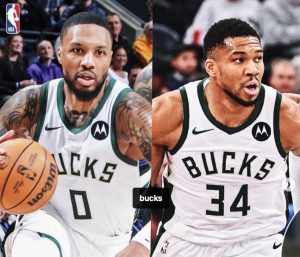
Basketball Without Borders: Fostering Global Talent and Understanding
Finding and developing young basketball talent from all around the world has been made possible by the NBA and FIBA’s joint Basketball Without Borders (BWB) program.
Aspiring players from a variety of backgrounds have joined BWB since its founding in 2001 to take part in camps that emphasize education, leadership development and skill improvement. In addition to providing a springboard for athletes hoping to break into professional leagues like the NBA, the program places a strong emphasis on cooperation, mutual respect and cultural awareness among its members.
Numerous NBA players, including Joel Embiid and Pascal Siakam, attribute their ascent to the league in large part to BWB, demonstrating its major influence on the development of basketball talent worldwide.
Basketball Creating a Global Change
Beyond basketball, BWB tackles significant social concerns and promotes constructive community change across the globe.
To enable participants to become leaders on and off the court, the curriculum includes workshops on gender equality, education and health awareness. It also emphasizes how athletics can bring people together and foster enduring relationships between athletes from various geographical areas.
Basketball Without Borders has solidified its position as a global ambassador for the sport by fusing social responsibility with physical prowess, demonstrating that basketball is more than simply a game but also a means of empowerment and unification.
NBA Global Games: Bridging Cultures Through International Competitions
The NBA Global Games have developed into an essential forum for fostering cross-cultural interaction and broadening basketball’s appeal internationally.
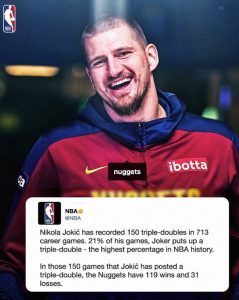
The NBA offers overseas fans a rare opportunity to witness the league’s enthusiasm and energy firsthand by holding preseason and regular-season games in nations like France, China and Mexico. Top teams visit famous locations for events like the NBA Paris Games, fusing local customs with basketball’s universal appeal.
These matches honor the ethnic diversity of the NBA’s fan base and demonstrate the league’s dedication to expanding the sport beyond its historical bounds.
The Future of the League
The significance of these events extends beyond the court, as they foster engagement with local communities and inspire young athletes to pursue their basketball dreams.
Outreach programs, clinics and partnerships with local organizations accompany these games, emphasizing social impact and inclusivity. The NBA Global Games not only provide thrilling sports entertainment but also act as cultural bridges, connecting fans, players and communities worldwide.
By embracing these global opportunities, the NBA continues to solidify its status as a leading force in uniting people through the universal language of basketball.
